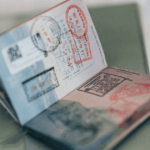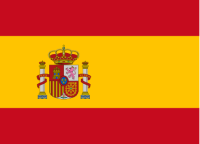1. Introduction to Digital Nomad Visas
Before the pandemic, working remotely from abroad was an option available only to freelancers and self-employed people. However, with the rise of remote work globally, many more of us can now work from anywhere.
2. What Is a Digital Nomad Visa?
A Digital Nomad Visa allows foreign nationals to live and work in another country for an extended period. Unlike tourist visas, which typically last for 30 days to a few months, digital nomad visas are designed for long-term stays (6 to 12 months), with the option to renew.
These visas are perfect for:
- Remote employees
- Freelancers
- Entrepreneurs with overseas clients
Benefits of a Digital Nomad Visa:
- Longer-Term Stays: Ideal for people looking to live abroad beyond the limitations of tourist visas.
- Tax Incentives: In many cases, you’ll be given local tax breaks, meaning you’ll typically only pay taxes in your home country.
- Residency Options: Some countries offer pathways to longer-term residency for digital nomads.
- Remote Work Infrastructure: Countries invest in co-working spaces, reliable internet, and digital-friendly communities to attract remote workers.
3. How Did Remote Work Look Before the Pandemic?
Before remote work became mainstream:
- Tourist Visas were often used for short-term stays.
- Work Visas were necessary for employment with local companies.
- Freelance Visas were rare but available in select countries.
The pandemic changed this landscape dramatically. Many traditional companies embraced remote work, and several countries introduced digital nomad visa programs to attract high-spending, long-term visitors.
4. What is New Zealand’s Digital Nomad Visa
New Zealand has thrown open its doors to digital nomads, revamping visitor visa rules to welcome remote workers and freelancers.
On 27 January 2025, the New Zealand government made a significant update to the Visitor Visa, allowing visitors to work remotely for overseas employers while enjoying their stay in the country. This update applies to all visitor visa and NZeTA (New Zealand Electronic Travel Authority) holders.
In New Zealand, there is no Visa called the “Digital Nomad Visa.” the Visitor Visa is updated as such; it has all the features and benefits of “Digital Nomad Visa,” and it’s equivalent to “Digital Nomad Visa” of other countries.
Key Highlights:
- Work Remotely from New Zealand: If you have a remote job or freelance gig, you can now work from New Zealand while enjoying its stunning scenery.
- Eligible Visa Holders: Tourists, family visitors, and even those on longer-term visas (like partners and guardians) can benefit.
- Important Restrictions:
- You can work only for overseas employers or clients.
- You cannot provide goods/services locally or work for New Zealand-based companies.
Government’s Perspective:
Tourism Minister Louise Upston calls it the perfect pitch for “workstations”—highlighting the global boom in digital nomad visas. These aren’t typical holidaymakers—they stay longer, spend more, and help boost the economy, even during off-peak seasons.
5. Important Considerations for Digital Nomads in New Zealand
While the opportunity sounds exciting, keep the following in mind:
- Tax Implications: If you plan to stay beyond 92 days in a year, you might face local tax obligations.
- Legal Compliance: Stick to the rules—do not work for local clients or set up businesses targeting New Zealand customers.
- Changing Regulations: Immigration laws evolve frequently, so always stay updated.
6. How to Apply for a Digital Nomad Visa
The process varies by country, but generally, you’ll need:
- Proof of Steady Income: Requirements differ between nations.
- Proof of Employment/Freelance Work: Must be for a company or clients outside the country where you intend to live.
- Valid Health Insurance: Essential for covering medical needs abroad.
Application Submission: Apply via the respective country’s embassy/consulate, with processing times ranging from a few weeks to a couple of months.
7. Popular Destinations for Digital Nomads
Currently, around 40 countries offer digital nomad visa programs. In Europe, top choices include:
- Estonia
- Croatia
- Portugal (Though it doesn’t have a digital nomad visa, it offers other long-term residency options.)
Key Factors to Consider When Choosing a Country:
- Cost of Living
- Public Safety
- Internet Connectivity
- Climate and Lifestyle Preferences
For example, Dubai is a fantastic destination for remote work, but it may not suit everyone financially.
8. Special Notes and Common Misconceptions
- If you want to work for a local company (e.g., a German company while living in Germany), a digital nomad visa isn’t the right option. You’d need something like the EU Blue Card instead.
- Double Taxation Concerns: Many countries offering digital nomad visas provide tax exemptions to avoid this issue.
9. Final Thoughts
New Zealand’s move to embrace digital nomads reflects how the pandemic has reshaped the global workforce. The world has gone hybrid, and New Zealand is catching up, offering remote workers a chance to live and work amidst breathtaking landscapes.
So, digital nomads—sharpen those pencils, get your applications in, and remember to stick to the rules!
- No working for local clients
- Keep an eye on tax laws
- Stay updated with immigration regulations
If this guide answers your questions, feel free to share it, and stay tuned for more updates on digital nomad visa programs around the world.
See you soon—and maybe from a beach in New Zealand!














